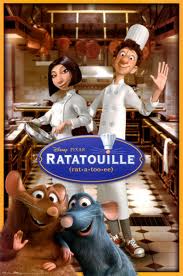WHAT ‘IDENTITY FOUNDATIONS’ ARE AT STAKE HERE?
 FOR THE SAKE OF better stories, I want to get everybody thinking about how important personal identity (or sense of self) is to all good stories — across the entire spectrum from farces to heavy dramatic thrillers!
FOR THE SAKE OF better stories, I want to get everybody thinking about how important personal identity (or sense of self) is to all good stories — across the entire spectrum from farces to heavy dramatic thrillers!
Present in every enduring story, even if for much of the time they’re just quietly percolating off in some hidden corner, there are always clashes of two or more individuals whose identities are being threatened by one another’s worldview (and related behaviors).
Think about it: At some level, whether we realize it or not, we are all in some sense “riding on” a sense of our identity with which we are (at least somewhat) comfortable — until some challenging person or problematic circumstance rises before us and vehemently points at chinks or flaws in our identity/worldview and its ability to handle this “new thing.”
Now, we may protest that these aren’t chinks or flaws, that we can easily explain these “distressed” areas away.
But if we even slightly feel, deep down in our souls, that perhaps the challenger is correct — even though s/he couldn’t possibly be correct! — most of us will very quickly move to defensively justifying our worldview/identity, or more likely will shortcut that and go offensively toward pointing out even more chinks/flaws in the other person’s worldview/identity!
 And if neither side is all that articulate in defending his/her own point of view, or in critiquing the other side’s point of view, chances are strong that we’ll quickly see an escalating physical confrontation.
And if neither side is all that articulate in defending his/her own point of view, or in critiquing the other side’s point of view, chances are strong that we’ll quickly see an escalating physical confrontation.
So, that’s where I “start” when looking at the cohesiveness, meaning, and universal “reach” of any story, whether it’s a knee-slapper like Tootsie or Ratatouille, or a dramatic masterpiece like To Kill a Mockingbird or The Shawshank Redemption, or hundreds of others in between:
What “identity anchors” of the characters are jeopardized by the arising story problem/s, such that these characters feel they must fight with all their might to either preserve their existing identity, or to quickly find a new identity that will be more useful/suit them even better, in case their existing identity isn’t sufficient to the challenges they’re being dragged through?
Considering the four “classics” I mention above, can you identify some of the “identity anchors” that power their principal characters to such great heights of diligence, such drastic riskings of life or limb or reputation or punishment, such dogged pursuit of either vindication or of a better “case” to present? Consider these four, and any other of your enduringly favorite films, and see if you start to see some patterns…
Yes, the “classics” always get this worldview/identity inculcation “right.” And I love to help committed screenwriters do the same!


I’m going to use “The Shawshank Redemption” because it is the most recent of these 4 that I’ve seen. I would say that the “identity anchor” that holds Andy is freedom and his hope of attaining it. The longer he stays in the prison, the more he wants his freedom. It is this sense of being wronged and for an act that he didn’t do, that propels him through “… riskings of life or limb or reputation or punishment…” till the end, when he finally does break out.
Well, yes, “freedom” is certainly ONE of Andy’s “identity anchors.” But an even bigger one is his actual innocence, and his determination to not let “the system” get away with this unjust imprisonment.
Of course EVERYONE in Shawshank Prison says they’re innocent, but the story clearly shows that Andy’s one of those who actually IS, and he’s not going to take this life sentence lying down!
Andy’s deepest identity anchor is, “I am not a killer, and I shouldn’t be punished as one” — which is very similar to the MC’s identity anchor in THE FUGITIVE, where Harrison Ford’s Dr. Richard Kimble suffers a similar false imprisonment and pursuit.
And then there’s Red (Morgan Freeman’s SHAWSHANK character), whose identity anchor for most of the story is: “I’m no longer a criminal at heart, but I’m going to accept — and even support — the system that keeps me locked up, lying to cooperate rather than living honestly as a man who should be freed. I’m gonna reject fantastical hopes and just SETTLE for an imprisoned life.”
So see how these two prisoners’ identity anchors put them in a compelling (loyal) opposition to each other?
Whadday’all think?